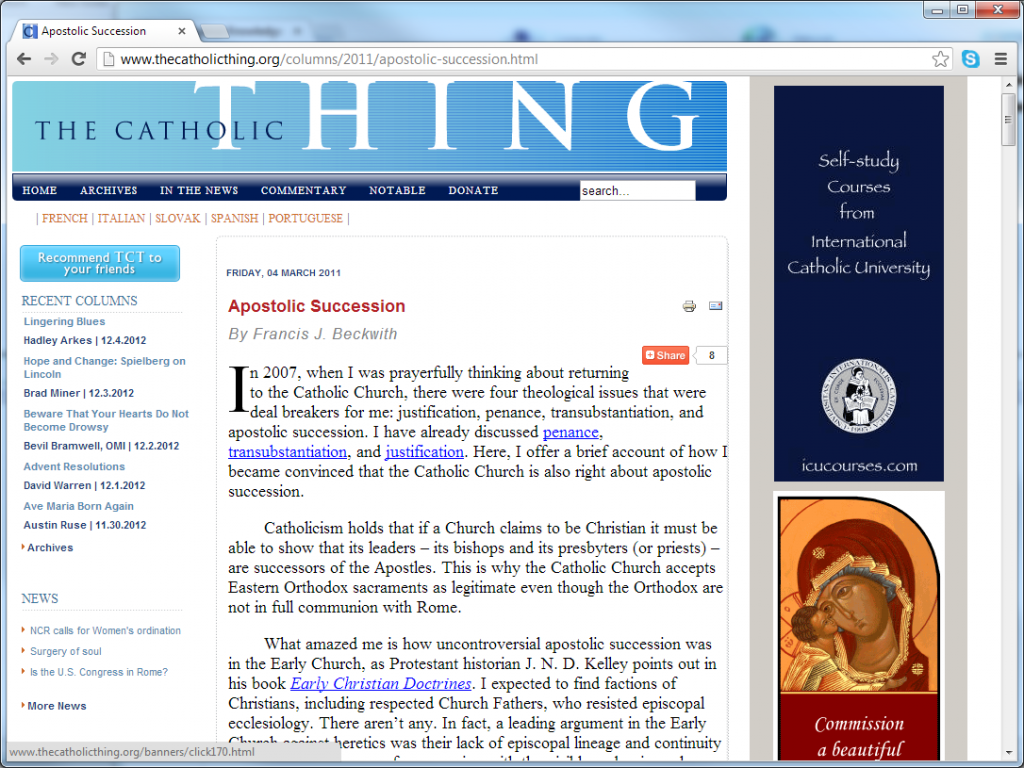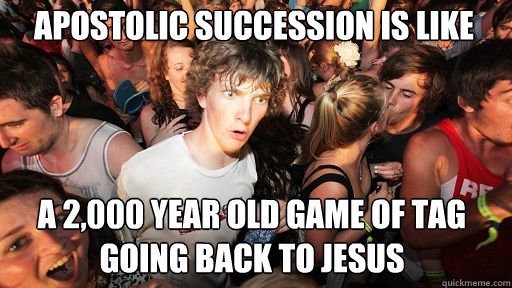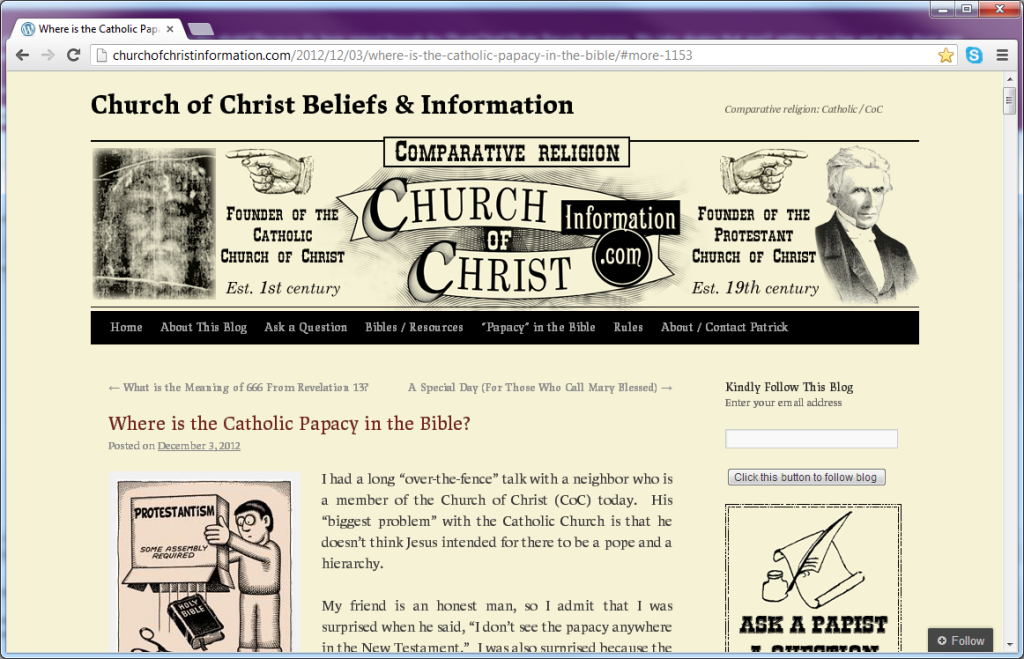Today I’d like to talk a little bit about Jesus’ Real Presence in the Eucharist.
A little a while ago I was conversing via email with a non-Catholic called Gerry. We spoke briefly about the Eucharist and he graciously agreed to allow me to post some of our conversation here. Here’s what he said:
“And the mother of it all, in my opinion, is the Eucharist. Transubstantiation. Utterly abominable. Christ was a “victim” once and it was sufficient forever!
The mass is as unholy as a thing can be. We eat His flesh and drink His blood in the spiritual sense, not literal. And to think they even bow down and worship and kiss that cracker because it is (supposedly) Christ in the flesh. And God won’t judge these abominations?!” – Gerry, Email #2
I’m not going to offer a complete defense of the Eucharist here, many other more capable than I have done that already. Instead, today I’d just like to ask a couple of questions concerning one Scripture passage and then on Friday to take a brief look at Christian history.
Below is part of the “Bread of Life” discourse given by Jesus in John’s Gospel:
I am the living bread that came down from heaven. Whoever eats this bread will live forever. This bread is my flesh….Very truly I tell you, unless you eat the flesh of the Son of Man and drink his blood, you have no life in you. Whoever eats my flesh and drinks my blood has eternal life, and I will raise them up at the last day. For my flesh is real food and my blood is real drink. Whoever eats my flesh and drinks my blood remains in me, and I in them. – John 6:51-54
There are two main questions I’d like to raise here:
1. How did Jesus’ audience understand Him?
After giving this sermon, many people who had been following Jesus left Him. Why did they leave? It’s because they took Him at His word! They believed that He was saying that they had to actually eat His flesh and drink His blood.They took his words literally!
Souls were lost that day because they assumed Jesus wasn’t speaking metaphorically. This begs the question: if Jesus was speaking figuratively, why did He allow so many to leave Him over a something that was just a misunderstanding? Would God really be that cruel?
2. What would He have had to say if He wanted to speak literally?
When speaking with people who interpret John 6 figuratively, I propose the following thought experiment. Firstly, I assume that they are correct in their interpretation of John 6. Jesus was speaking figuratively. However, I then offer the following challenge: if you wanted to go back and alter John 6 to make Jesus speak literally about His flesh, what would you change? Or, put another way, if Jesus had wanted to speak of his flesh literally, what could He have said to convince you that he was speaking literally and not figuratively? I mean, how could His language have been any more extreme than “my flesh is real food“?
So that’s an extremely brief look at John 6. On Friday we’ll look at the Christian witness of the Eucharist in the first two centuries.
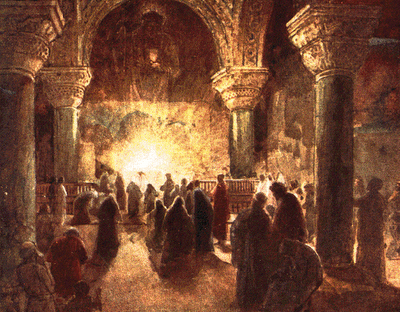
The article Real Food, Real Drink first appeared on RestlessPilgrim.net

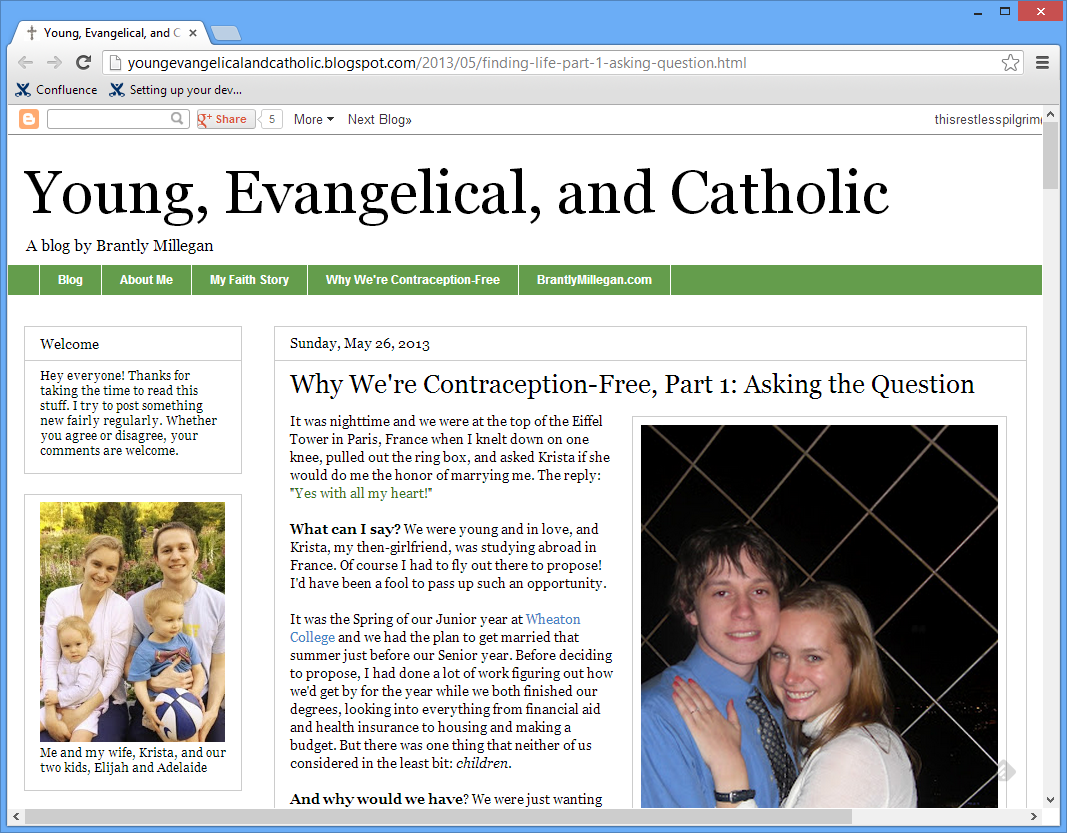
 As you’ll see from the categorization of this entry, this is an
As you’ll see from the categorization of this entry, this is an 


